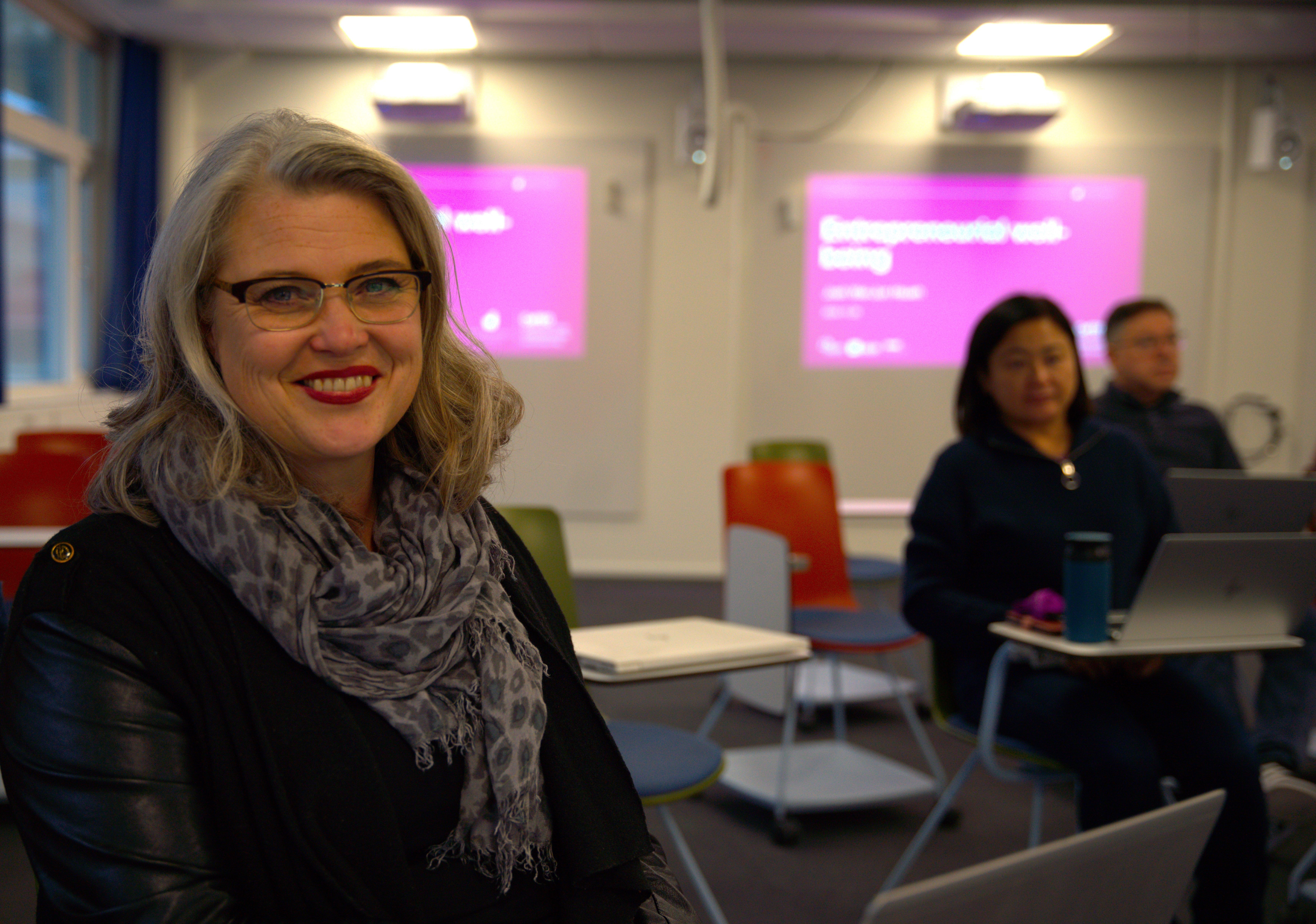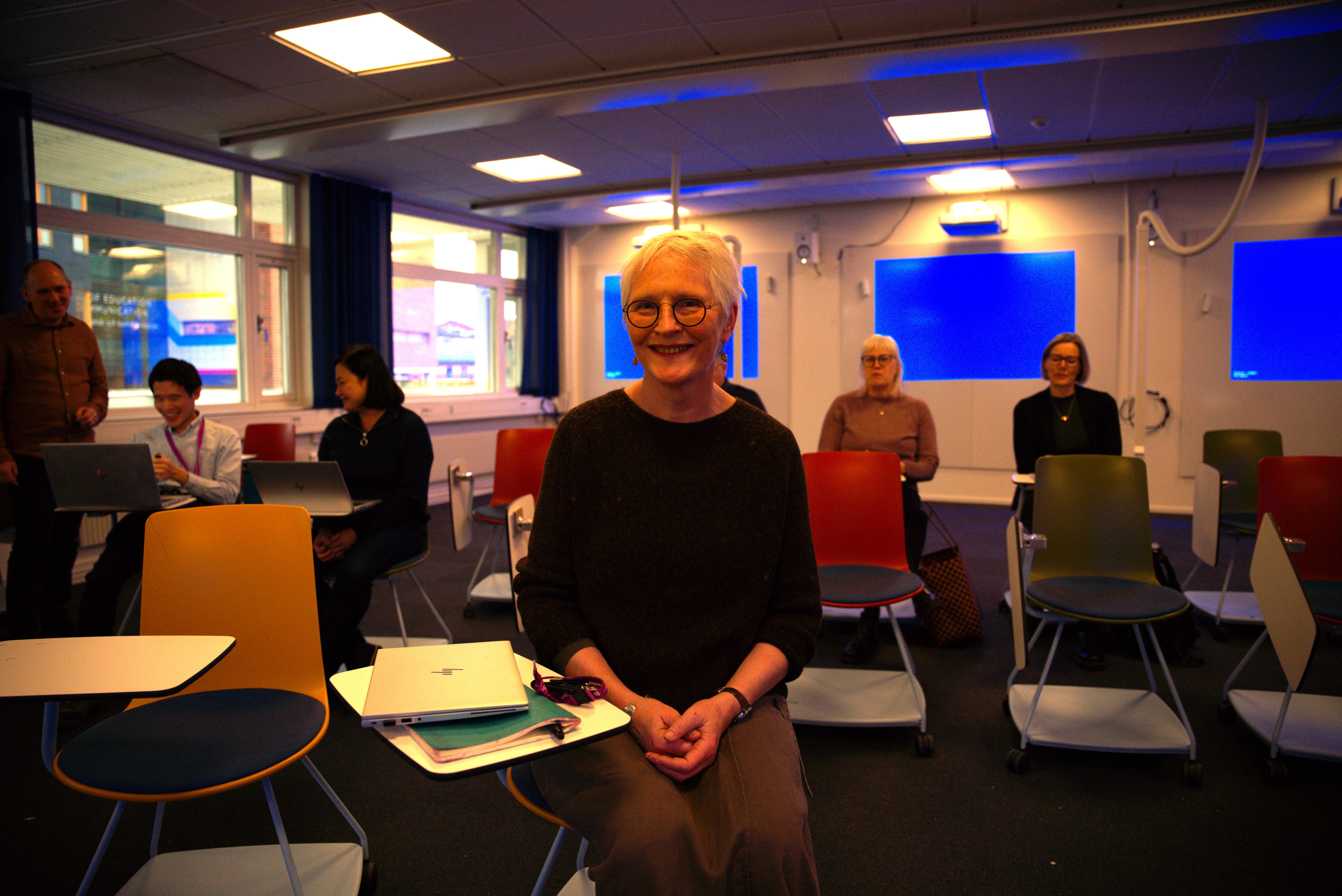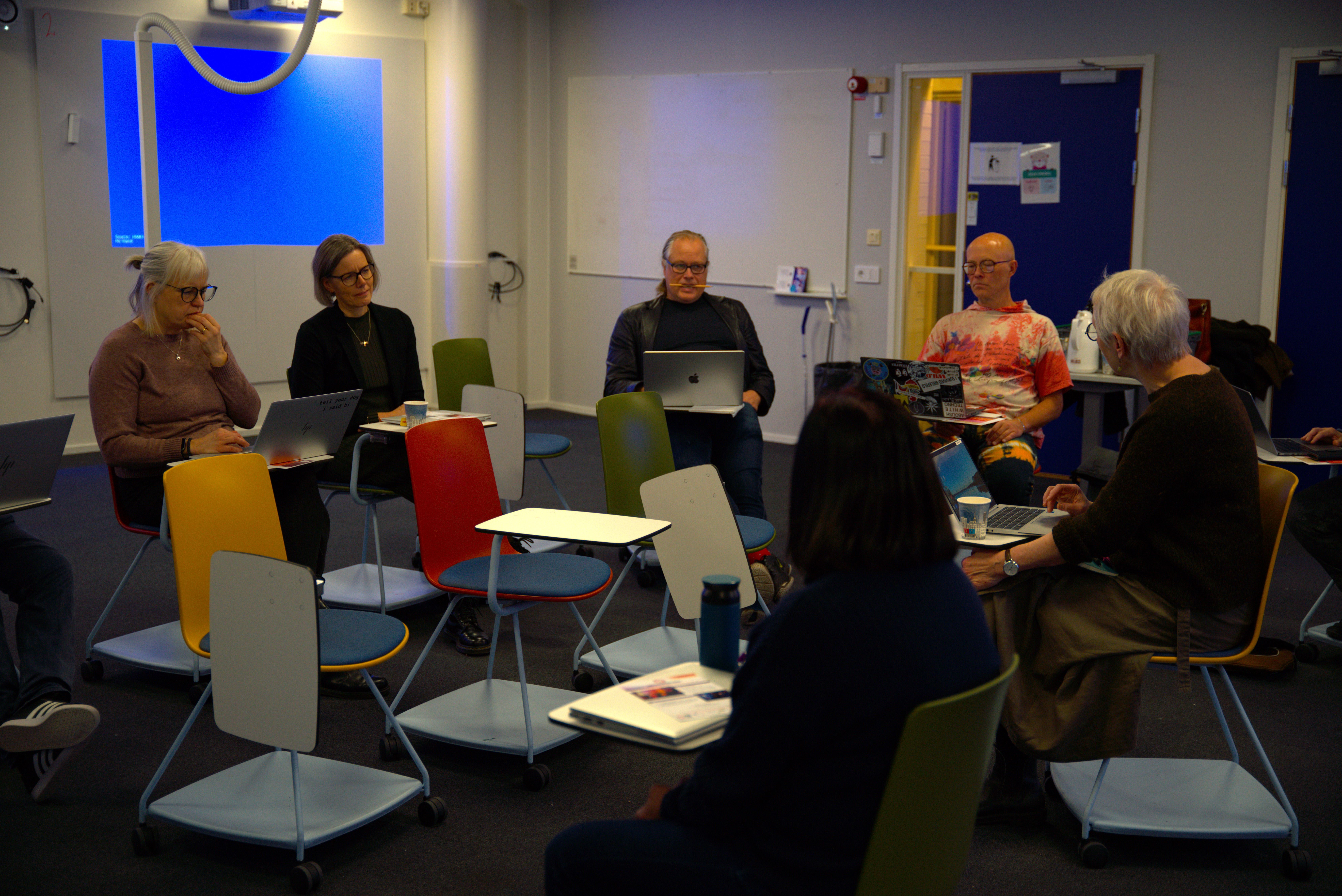Interdisciplinary network strengthens research on labour
NetWORK is a new interdisciplinary network formed on the initiative of researchers from the School of Health and Welfare at Jönköping University (JU). On 28 November, the network gathered to discuss and listen to research projects on various work-related themes. Hopefully, it will lead to new collaborations and new knowledge.

Ingela Bergmo Prvulovic, Senior Lecturer and Associate Professor of Education at the School of Education and Communication and Research Environment Leader for Encell (Lifelong Learning), spoke about how organizations can develop their leadership development systems to achieve organizational goals and manage change.
The new network aims to create a platform of seminars and other activities for those who research or want to research labour in different ways. In this way, research on working life is brought together and strengthened across different groups at JU.
One of the initiators of the network is Anne-Le Morville, Senior Lecturer at the School of Health and Welfare. She runs netWORK together with colleagues Pia Andersson, Senior Lecturer in Psychology at the School of Health and Welfare, Géza Fischl, Senior Lecturer in Architecture from School of Engineering (JTH) and Duncan Levinsohn, Senior Lecturer in Business Administration at Jönköping International Business School (JIBS).
Anne-Le has worked extensively on issues related to working life and finds netWORK a very exciting project.
“Work is such a big thing in people's lives, both in relation to identity, survival and the whole existence. We humans identify ourselves to a great extent with our jobs and therefore it is a very interesting and big topic,” says Anne-Le.
Good basis for co-operation between schools
Anne-Le hopes that netWORK will become a good basis for co-operation between all four schools. She has noticed that there is a great deal of interest in comprehensive co-operation between the schools.
She says that the first meeting took place back in May, when researchers from the various universities of applied sciences presented current research.
In September, the network had a second meeting in the form of an interactive dialogue café with the aim of finding research connections across the various schools. During the September meeting, learning, competence and development were discussed.
On 28 November, the group met again for a seminar where research projects from the different schools formed the core of the gathering.
First to present was Josh Wei-Jun Hsueh, Associate Professor of Business Administration at JIBS. His presentation focused on the well-being of entrepreneurs and highlighted, among other things, how society can help entrepreneurs to reduce stress and its negative consequences.
Josh thinks that netWORK is a positive initiative that he is happy to be a part of.
“I think it's really good that all schools are involved. It's a good chance to learn from other schools‘ perspectives and best practices,” he says.

One of the initiators of the network is Anne-Le Morville, Senior Lecturer at the School of Health and Welfare.
Research project at the center
On November 28th, it was time for the group to meet again during a seminar where research projects from the different universities formed the core of the gathering.
First to present was Josh Wei-Jun Hsueh, Associate Professor of Business Administration from JIBS. His presentation focused on the well-being of entrepreneurs and highlighted how society can help entrepreneurs to reduce stress and its negative consequences.
Josh thinks that netWORK is a positive initiative that he is happy to be a part of.
"I think it's great that all schools are involved. It's a good chance to learn from other schools' perspectives and best practices," he says.
Leadership and inner development
Following Josh's talk, participants gained insights from a research project on leadership when Ingela-Bergmo Prvulovic, Senior Lecturer and Associate Professor in Education at the School of Education and Communication and Research Environment Leader for Encell (Lifelong Learning), spoke about how organizations can develop their leadership development systems to achieve organizational goals and manage change.
“By using everyone's different competences and seeing differences as an advantage, we build bridges,” says Ingela.
The final presentation was given by Guénola Nonet, Senior Lecturer in Business Administration at JIBS, who shared her knowledge of the Inner Development Goals (IDG), a framework that aims to develop human capabilities and qualities to support sustainable development and achieve the UN Sustainable Development Goals.

The seminar ended with a panel discussion where all participants were asked to think about which areas they would like to discuss more at the next meeting.
The seminar ended with a panel discussion where all participants were asked to think about which areas they would like to discuss more at the next meeting.
Ingela Bergmo Prvulovic hopes that the group will be able to find some kind of common approach to a problem that needs to be researched. She also hopes that the group will be able to benefit from each other's expertise in order to make joint research applications in the future.
“The main aim is for us to become even stronger together. We may be strong individually in our respective fields, but if we can come together on complex issues, we will be even stronger. We are four fantastic universities of applied sciences, all of which have genuine expertise that it is very important to be able to utilize in a network like this,” says Ingela.
